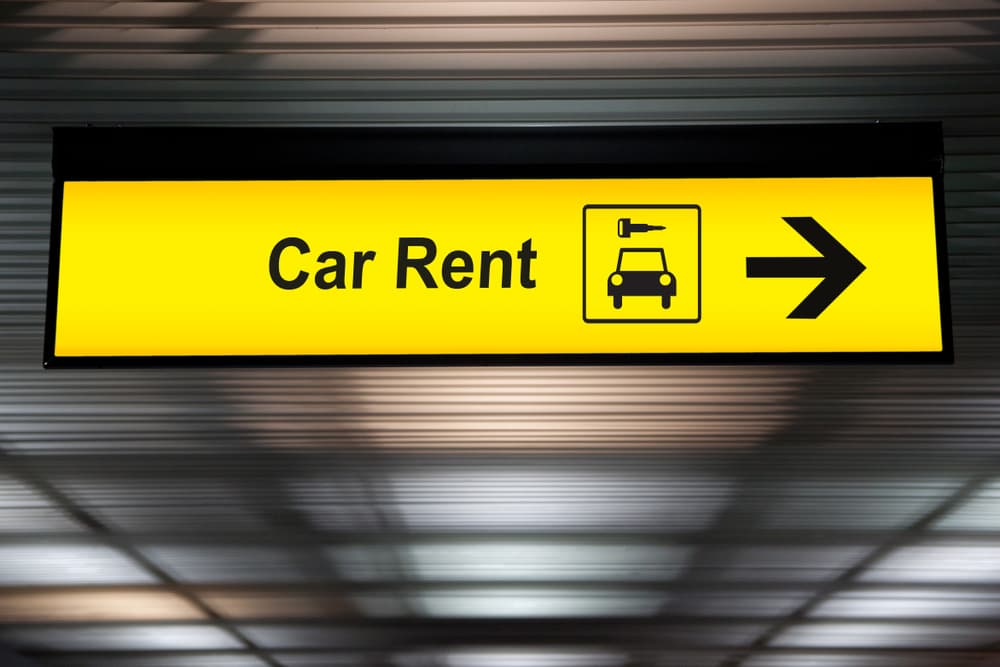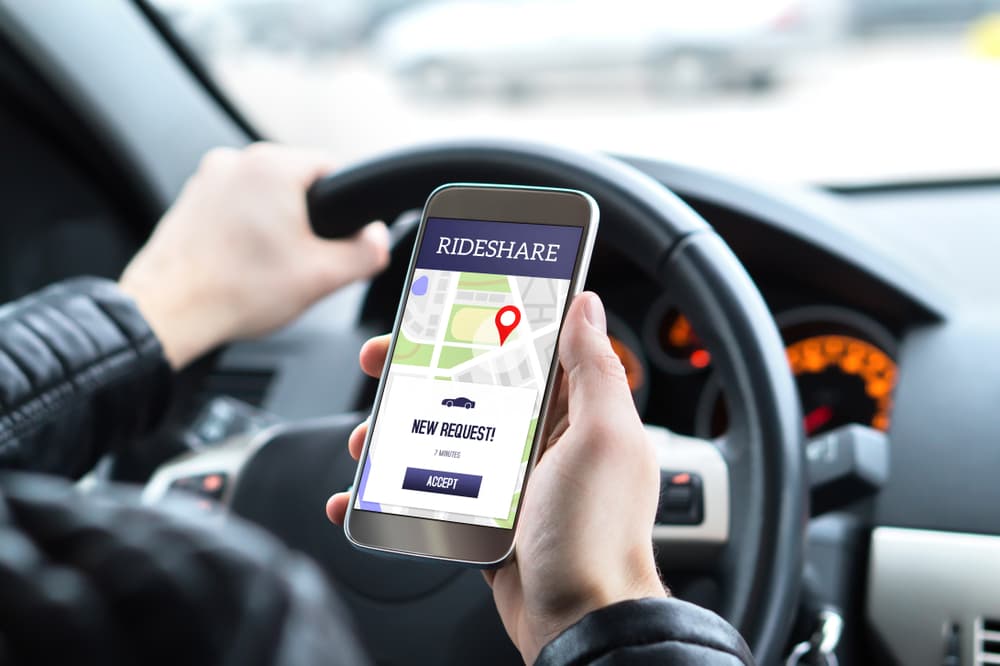After receiving a DUI (Driving Under the Influence) conviction, some aspects of everyday life can become more challenging. One concern is whether it’s possible to rent a car with a DUI on your record.
In this post, we’ll explore the different aspects of this issue, helping you understand your options and make informed decisions. Reach out a seasoned DUI defense lawyer near you for legal assistance.
Understanding DUI and Its Implications
Firstly, it’s important to understand what a DUI entails. A DUI, or driving under the influence, is a serious offense that indicates a person has operated a vehicle while impaired by alcohol or other substances.
This mark on your driving record can have far-reaching consequences, impacting your ability to rent a vehicle.
Rental Car Companies’ Policies
Rental car companies operate on the principle of risk assessment. Each company aims to minimize the risk associated with lending out their vehicles. This is where your driving history becomes a factor in their decision-making process.
A DUI, or Driving Under the Influence, is often viewed as a significant risk indicator by these companies. The presence of a DUI on your driving record can suggest to the rental company that there’s a higher likelihood of an accident or legal issue, which could lead to costly repairs, legal complications, or damage to their reputation.
Because of this perceived risk, many rental car companies are hesitant to rent vehicles to people with a DUI history.
Rental car companies typically have access to databases that provide detailed driving records, including any DUIs. When you apply to rent a car, these companies will often conduct a background check on your driving history.
If a DUI arises during this check, the company’s policy regarding such offenses will come into play.
These policies can vary widely from one company to another. Some might have a blanket policy prohibiting renting to anyone with a DUI on their record, regardless of the circumstances or how much time has passed.
Others might be more lenient, allowing rentals after a certain period has elapsed since the DUI incident. Depending on the company’s guidelines, this period can range from a few months to several years.
Another aspect to consider is the severity of the DUI incident. Some rental companies might differentiate between a single DUI and multiple offenses. A rental car company may view a one-time incident more leniently than a pattern of behavior that suggests habitual impaired driving.
It’s also worth noting that you can often find the specific terms and conditions related to DUIs in the fine print of the rental agreement or company policy documents. These terms are usually non-negotiable, and the company staff has limited discretion in overriding them.
In addition to these company-specific policies, there can also be regional differences. For instance, rental companies operating in areas with stricter DUI laws might have more strict policies in place. Conversely, rental companies might adopt a more forgiving stance in regions where DUI laws are more lenient.
Factors Considered by Rental Companies

There are several factors considered by rental companies when determining whether or not to rent to a person with a history of DUI:
Time Since the DUI
The period that has elapsed since the DUI offense is often a factor for rental car companies when evaluating a potential renter’s application. Many companies have established specific timeframes that act as a buffer before considering renting to someone with a DUI on their record.
For example, a common timeframe adopted by numerous companies is 48 months. If your DUI occurred less than four years ago, these companies will likely deny your rental application.
This waiting period is rooted in the idea that as more time passes, the risk associated with renting to an individual with a DUI decreases.
The rationale behind this policy is twofold. Firstly, it assumes that with time, the individual has had the opportunity to demonstrate improved driving behavior and responsibility. Secondly, it serves as a deterrent, emphasizing the seriousness with which the company views DUI offenses.
However, this timeframe can vary significantly between different rental companies. Some may require a longer period, while others might be more lenient. This variance often reflects the company’s overall risk tolerance and their specific experiences with renters who have DUI histories.
The severity of the Incident
The details surrounding the DUI incident can also play a significant role in a rental car company’s decision-making process. A rental car company may view a single DUI incident in a different light compared to multiple offenses. It might consider a one-time occurrence a lapse in judgment or a one-off mistake, whereas multiple DUIs could indicate a pattern of irresponsible or risky behavior.
Rental companies might also consider the circumstances of the DUI. For instance, a DUI involving an accident, especially one resulting in injury or significant property damage, is likely to be viewed more seriously than a DUI that was a result of a routine traffic stop with no additional complications.
The approach to evaluating the severity of a DUI incident reflects the rental company’s commitment to safety and responsibility. By differentiating between a single incident and multiple offenses, these companies essentially weigh the risk of potential future liabilities against the individual’s need for a vehicle.
Driving Record
Apart from the DUI, your overall driving record is another significant aspect that rental companies consider. A clean driving record, with the exception of a single DUI, may be viewed more favorably than a record that includes multiple traffic violations or other offenses.
The rental car company will likely operate on the belief that your overall driving history is indicative of your behavior and responsibility as a driver. A record that shows a pattern of reckless driving, speeding, or other traffic violations suggests a higher level of risk for the rental company.
On the other hand, if the DUI appears as an isolated incident in an otherwise clean record, the company might be more inclined to rent to you, assuming that the DUI was an aberration rather than a consistent pattern.
Age of the Renter
Finally, the age of the individual looking to rent a car can influence the rental company’s decision, particularly in cases involving a DUI. Younger drivers, especially those under 25, are often scrutinized more. This is because of a higher incidence of risky driving behavior and accidents among younger drivers.
In the context of a DUI, a younger individual might be perceived as more of a liability, leading to stricter rental criteria or outright denial in some cases. This heightened scrutiny reflects the rental company’s risk assessment practices, where they use age as a proxy for maturity and driving experience.
Specific Policies of Major Rental Companies
The policies regarding renting a car with a DUI conviction vary among major rental car companies:
- Avis, Budget, and Payless: These companies, part of the Avis Budget Group, have a clear policy regarding DUI convictions. They do not allow rentals to drivers with DUI or DWI charges on their record within the last 48 months. After this period, individuals with prior DUI or DWI charges can rent from these companies, provided they have no other current issues that would disqualify them from renting, such as reckless driving charges within the last 36 months or more than three moving violations and accidents in 36 months.
- Hertz, Dollar, and Thrifty: The policies of Hertz Global Holdings brands (Hertz, Dollar, and Thrifty) are less transparent compared to Avis, Budget, and Payless. They conduct driver record checks, but their policies do not explicitly address DWI or DUI convictions. These checks could potentially reveal a history of DUI, which might affect the rental decision.
- Enterprise, National, and Alamo: These companies do not have specific policies for driver checks about DUIs. However, they do not accept any license that, on its face, restricts the licensee to the use and operation of a vehicle equipped with a form of a breathalyzer apparatus, which is often a condition following a DUI or DWI charge.
- ACE Rent a Car, Payless Car Rental, and Turo: These companies generally do not rent vehicles to individuals with a “recent” DUI conviction, although the definition of “recent” can vary. Payless Car Rental and Turo may consider these on a case-by-case basis.
- Dollar Car Rental, Hertz, Thrifty Car Rental, Zipcar: These companies have a policy of not renting to individuals with a DUI at any time.
These policies may vary by location and are subject to change. Additionally, different locations within the same company might have varying rules about what is considered a recent DUI. Therefore, checking with the rental company or a DUI lawyer for the most accurate and current information is always best.
Alternative Options and Tips
If you find yourself unable to rent a car due to a DUI, there are alternatives and strategies you can consider:
Use Public Transportation
Public transportation offers a practical alternative for individuals with a DUI who may face challenges in renting a car. This option is particularly viable in urban areas with more developed public transit systems and extensive coverage.
Cities often have a network of buses, subways, and trains that connect various neighborhoods and can be a cost-effective way of commuting. The benefits of public transportation include affordability, the avoidance of parking hassles, and a reduced carbon footprint.
However, consider factors like the schedule and reach of public transit in your area and any safety concerns, particularly during late-night travel.
Ride-Sharing Services

Ride-sharing services like Uber and Lyft have become popular transportation alternatives and can be a suitable option for those with a DUI. These platforms offer convenience and flexibility, allowing you to book rides directly from your smartphone. While ride-sharing companies may have policies regarding drivers with DUI histories, these typically do not extend to passengers.
Nonetheless, it’s advisable to check the specific policies of the ride-sharing service you plan to use. One limitation of this option is the cost, which can add up, especially for regular or long-distance travel.
Borrowing a Vehicle
Borrowing a vehicle from family or friends is another possible option for individuals with a DUI who cannot rent a car. This can be a flexible and cost-effective solution, particularly for short-term or occasional use. However, consider the insurance implications of borrowing a vehicle.
Ensure that the car’s insurance policy covers additional drivers and understand the terms and conditions of this coverage. Have open communication with the owner of the vehicle about your driving needs and any responsibilities you have while using their car.
Wait It Out
For those with a recent DUI, sometimes the most direct course of action is to wait until the DUI falls outside the rental company’s scrutiny window. Many rental companies have specific timeframes, typically around 48 months, during which they will not rent to individuals with recent DUIs.
By waiting out this period, you may become eligible to rent a car again.
During this waiting period, maintaining a clean driving record and adhering to all legal requirements is crucial. This approach requires patience, planning, and exploring alternative transportation methods in the interim.
Each of these alternatives has its own set of advantages and considerations. The choice depends on individual circumstances, including the frequency and nature of your travel needs, budget constraints, and the availability of different transportation options in your area.
Staying Informed and Compliant
Staying informed and compliant is a key strategy for individuals with a DUI on their record who wish to rent a car in the future. This involves a proactive approach to understanding and adhering to the evolving policies of rental companies and the laws of the state where you intend to rent a vehicle.
To stay informed about rental companies’ policies, regularly check their websites or contact their customer service departments for the most current information. Rental companies often update their policies and may not always publicize their changes.
Additionally, consider signing up for newsletters or alerts from these companies, which can provide updates on policy changes directly to your inbox.
Understanding state laws is equally important. Laws regarding driving offenses and their implications can vary significantly from state to state. Regularly reviewing the Bureau of Motor Vehicles (BMV) website of your state and those of states you plan to visit can help.
These websites typically provide up-to-date information on driving laws and regulations. You might also find it helpful to attend informational sessions or workshops conducted by legal experts or advocacy groups focused on driving laws and rights.
Finally, building a relationship with a specific rental company can be advantageous. If you frequently rent from the same company and demonstrate a record of responsible vehicle use, they may prefer to consider your rental requests favorably despite a DUI on your record. This approach requires a commitment to responsible driving and regular communication with the company to build trust over time.
By staying informed about the policies of rental companies and state laws and demonstrating a commitment to legal compliance and responsible driving, you can improve your chances of renting a car in the future despite having a DUI on your record.
Seeking Legal Advice About Renting a Car With a DUI

While a DUI can complicate renting a car, it’s not necessarily an insurmountable hurdle. By understanding the policies of rental companies, staying informed about state laws, and exploring alternative transportation options, you can overcome this challenge.
Remember, responsibility and informed decision-making are key to moving forward. If you have any questions, reach out to a Akron criminal defense attorney for more information


